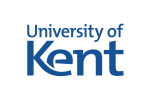© Pint of Science, 2025. All rights reserved.
Should prisons become pain factories?
Lauren Ware
(Lecturer in Moral Philosophy)
Imagine two prisoners, Ronnie & Reggie, both of whom have committed identical crimes under identical circumstances, and who have both been sentenced to 4 years in identical prison facilities. In fact, their punishment conditions are identical in all respects—except that Ronnie is tormented by prison life and lives in a constant state of fear and distress, whilst Reggie finds prison life merely difficult and unpleasant. If we subscribe to the Equality Principle of equal punishment for equal crimes, have Ronnie & Reggie been punished equally? Come discuss over a pint with a philosopher of pain.
Save Our Sure Starts? Austerity and children's services
Eleanor Jupp
(Lecturer in Social Policy)
During 2017-18, Medway Council is shutting a number of Sure Start Children's Centres, set up to provide local support to children under five and their carers. This has been strongly resisted by local families and campaigners. The same closures and campaigns are happening elsewhere in the UK. This talk will place these contentious local issues within a wider context of austerity, policy priorities and community responses. The talk will include a short animated film made based on interviews with mothers in Medway about the values of the Centres.
Outbreaks, epidemics and pandemics: The 100th anniversary of the Great Influenza Pandemic.
Jeremy Rossman
(Senior Lecturer in Virology)
100 years ago, the influenza virus caused the single worst pandemic in recorded history. It is estimated that between 1918 and 1919 the virus killed 1% of the entire world’s population. Since then, we have experienced regular influenza outbreaks and occasional pandemics, with continued fear that each outbreak could be the start of the next great pandemic. This session will take a tour through the 1918 influenza pandemic, highlighting the dramatic impact to society before discussing what we know about the science of influenza viruses and the risks of future pandemics.
Map data © OpenStreetMap contributors.
